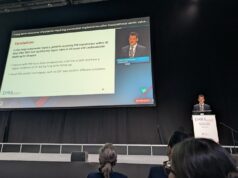
A machine learning-based model which uses electronic health record (EHR) data to predict a cardiac patient’s mortality risk prior to surgery, has “outperformed” the gold-standard Society of Thoracic Surgeons (STS) risk score in providing preprocedural risk assessments.
Developed by a Mount Sinai research team comprised of cardiovascular surgeons and data science specialists, the data-driven algorithm is said to be the first institution-specific model to assess cardiac risk. Using this framework, they believe healthcare providers may be able to more accurately pursue the best course of action for each individual patient.
Recently described in The Journal of Thoracic and Cardiovascular Surgery (JTCVS) Open, senior author Ravi Iyengar (Icahn Mount Sinai, New York City, USA) notes: “The standard-of-care risk models used today are limited by their applicability to specific types of surgeries, leaving out significant numbers of patients undergoing complex or combination procedures for which no models exist”. In combining EHR data with machine learning methods, Iyengar believes they have demonstrated how institutions can build their own risk models for post-cardiac surgery mortality.
Machine learning algorithms have been employed for prediction purposes in several fields of medicine to date, showing “improved results” over their standard-of-care counterparts, the study authors observe. Although the STS risk scoring system continues to provide essential benchmarks for hospitals to evaluate and improve performance, their derivation from population-level data limits accuracy in more complicated cases.
Closely comparing their model with the STS framework, the researchers point out that their “rigorous” machine learning framework is able to routinely collect EHR data which incorporates detailed information including demographics, socioeconomic factors and health characteristics from their specific institution. The STS scoring model however extracts population-based data from diverse health systems in different parts of the USA, which Iyengar et al believe can fail to accurately predict risk for specific patients with complicated pathologies who require tailored preoperative evaluations and complex surgeries.
Using an open-source prediction algorithm called XGBoost, the researchers created decision trees by focusing on “harder-to-predict subsets of training data”. Using the XGBoost the researchers modelled 6,392 cardiac surgeries performed at The Mount Sinai Hospital from 2011 to 2016, which included heart valve procedures, coronary artery bypass graft, aortic resection, replacement, or anastomosis and reoperative cardiac surgeries. The team subsequently compared the performance of their model to the STS scoring system for the same patient sets.
The authors state that the XGBoost model “outperformed” the STS risk scoring model for mortality in all commonly conducted categories of cardiac surgery, for which the STS scores were originally designed. Prediction performance of the XGBoost framework was also “high,” the researchers convey, demonstrating the “potential of machine learning and EHR data for building effective institution-specific models”.
“Accurate predication of postsurgical mortality is critical to ensure the best outcomes for cardiac surgery patients, and our study shows that institution-specific models may be preferable to the clinical standard based on population data,” opined co-senior author Gaurav Pandey (Icahn Mount Sinai, New York City, USA). “Just as importantly, we have demonstrated that it is practical for healthcare institutions to develop their own predictive models through sophisticated machine learning algorithms to replace or complement the established STS template,” Pandey summarised.










